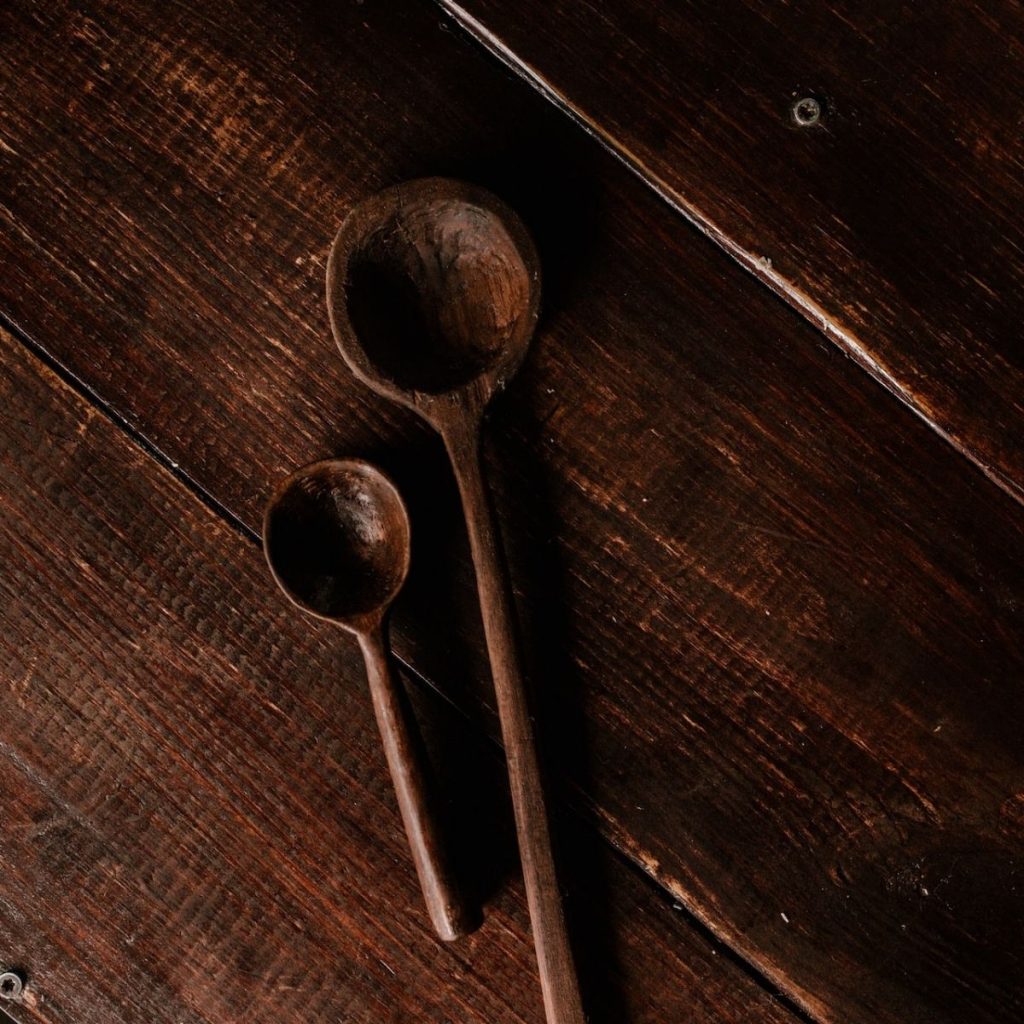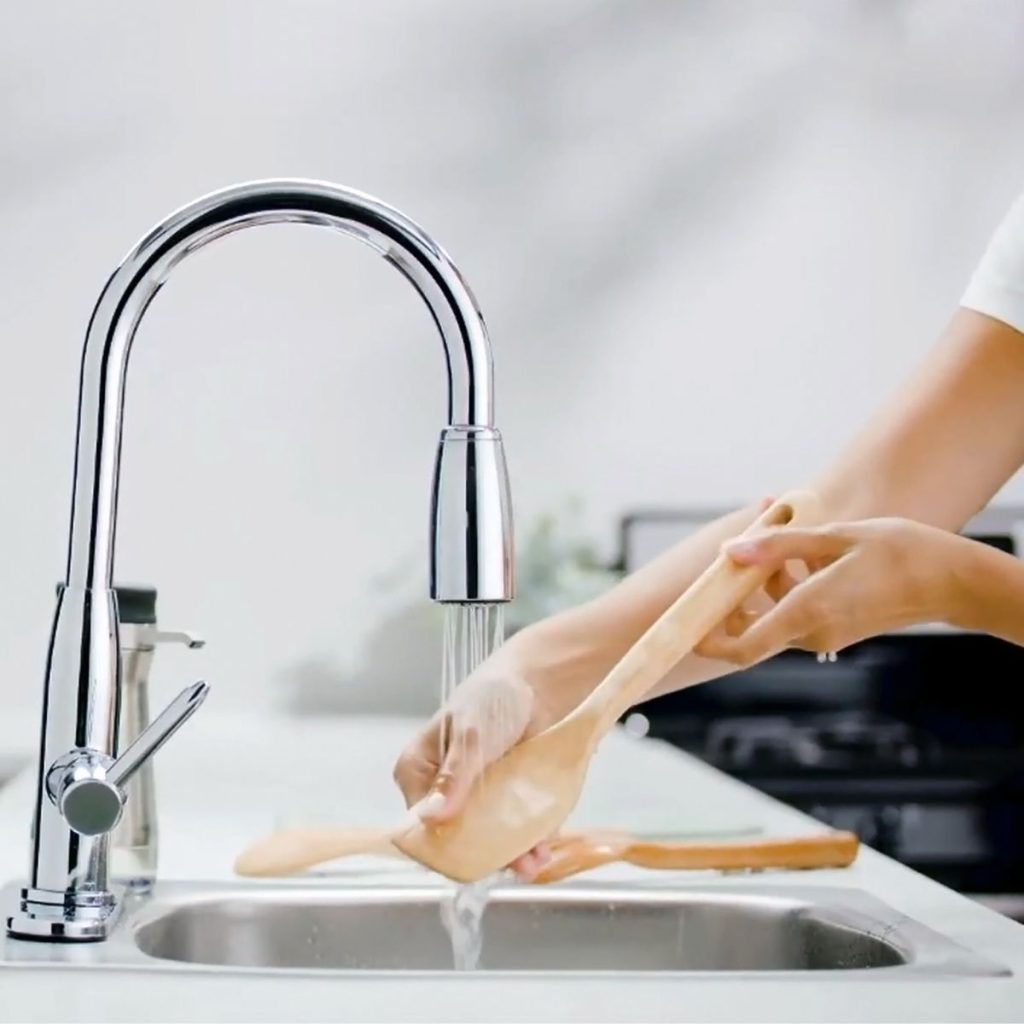Do you ever wonder and ask yourself, “Do wooden spoons hold bacteria?”.
In this article, we will talk about the science behind wooden spoons and explore the factors that affect bacterial growth on them.
We will compare wooden spoons to other utensils and provide you with expert tips for using wooden spoons safely.
By understanding the proper care and maintenance of wooden spoons, you can ensure a bacteria-free cooking experience.
Key Takeaways
- Wooden spoons are porous, allowing them to absorb moisture.
- The rough surface of wooden spoons provides hiding places for bacteria to thrive.
- Research shows that wooden spoons can harbor various types of bacteria, including pathogenic ones.
- Wooden utensils had higher bacterial counts compared to plastic and stainless steel utensils.
Do Wooden Spoons Hold Bacteria? The Science Behind

When it comes to wooden spoons, their porous nature makes them susceptible to absorbing moisture, which can lead to bacterial growth. The rough surface of the wood provides ample hiding places for bacteria to thrive and multiply.
So, do wooden spoons hold bacteria? Yes! Research has shown that wooden spoons can harbor various types of bacteria, including pathogenic ones that can cause foodborne illnesses. One study found that wooden utensils had higher bacterial counts compared to their plastic and stainless steel counterparts.
Additionally, wooden spoons are more difficult to clean thoroughly, as they can’t be put in the dishwasher. It’s essential to regularly sanitize wooden spoons to minimize the chances of bacterial contamination and ensure food safety.
Factors Affecting Bacterial Growth on Wooden Spoons
To understand the factors affecting bacterial growth on wooden spoons, you need to consider various variables. These variables include:
- Moisture content: Wooden spoons can absorb moisture, creating an environment that promotes bacterial growth. Higher moisture levels provide the necessary conditions for bacteria to thrive.
- Wood type: Different types of wood have varying levels of porosity, affecting how much moisture they can absorb. Hardwoods like maple or birch tend to have lower porosity compared to softwoods like pine or cedar.
- Surface condition: The condition of the spoon’s surface, such as cracks or scratches, can also influence bacterial growth. These imperfections can harbor bacteria, making it harder to clean effectively.
Comparing Wooden Spoons to Other Utensils
Consider the advantages and disadvantages of wooden spoons when compared to other utensils. Wooden spoons have been used for hundreds of years due to their durability, versatility, and natural beauty. However, when it comes to bacterial contamination, wooden spoons can be more problematic compared to other utensils. Let’s compare wooden spoons to stainless steel, silicone, and plastic utensils in terms of their ability to harbor bacteria.
| Type | Advantages | Disadvantages |
| Wooden Utensils | Natural, aesthetically pleasing, gentle on cookware | Porous, can absorb bacteria, require special care |
| Stainless Steel Utensils | Durable, easy to clean, non-porous | Can scratch cookware, may conduct heat |
| Silicone Utensils | Flexible, heat-resistant, easy to clean | Can retain odors, may not be suitable for high heat |
| Plastic Utensils | Lightweight, inexpensive, non-reactive | Can melt at high temperatures, prone to scratching |
When comparing wooden spoons to other utensils, it’s crucial to consider their specific advantages and disadvantages. While wooden spoons may have their charm, it is important to ensure proper cleaning and maintenance to minimize bacterial contamination.
Proper Care and Maintenance of Wooden Spoons

When caring for and maintaining your wooden spoons, it’s essential to follow proper cleaning practices to prevent bacterial contamination. Here are some guidelines to ensure the longevity and hygiene of your wooden spoons:
Cleaning:
- Hand wash your wooden spoons after each use with warm, soapy water.
- Avoid soaking them in water for long periods, as it can cause warping and splitting.
Drying:
- Pat dry your wooden spoons immediately after washing to prevent moisture buildup.
- Allow them to dry up completely before storing to avoid mold and mildew growth.
By adhering to these practices, you can keep your wooden spoons clean and safe for use.
Regular cleaning and drying will help prevent the accumulation of bacteria and maintain the integrity of your wooden spoons, ensuring their longevity and usability.
Expert Tips for Using Wooden Spoons Safely
To ensure the safe use of wooden spoons, it’s important that you follow expert tips for proper handling and maintenance.
First and foremost, it’s crucial to wash your wooden spoon thoroughly with hot, soapy water after each use. This will help remove any food residues and bacteria that may have accumulated during cooking.
Additionally, avoid soaking wooden spoons in water or leaving them submerged for long periods, as this can cause the wood to distort or crack. Instead, simply wipe them clean with a damp cloth and let them dry completely.
It’s also essential to periodically treat wooden spoons with food-grade mineral oil to maintain their integrity and prevent moisture absorption.
There you have it. I hope this answers your question about “Do wooden spoons hold bacteria?”.






Konnichiwa! (Hello!) I'm Pat Tokuyama, a Japanese tofu cookbook author, who travels for music, food, and adventure. If you like Japanese tea, checkout some of the newestorganic japanese tea, matcha bowls and noren and more!
** Curious about the Plant Based Japanese Cooking Club? ** Learn more here!